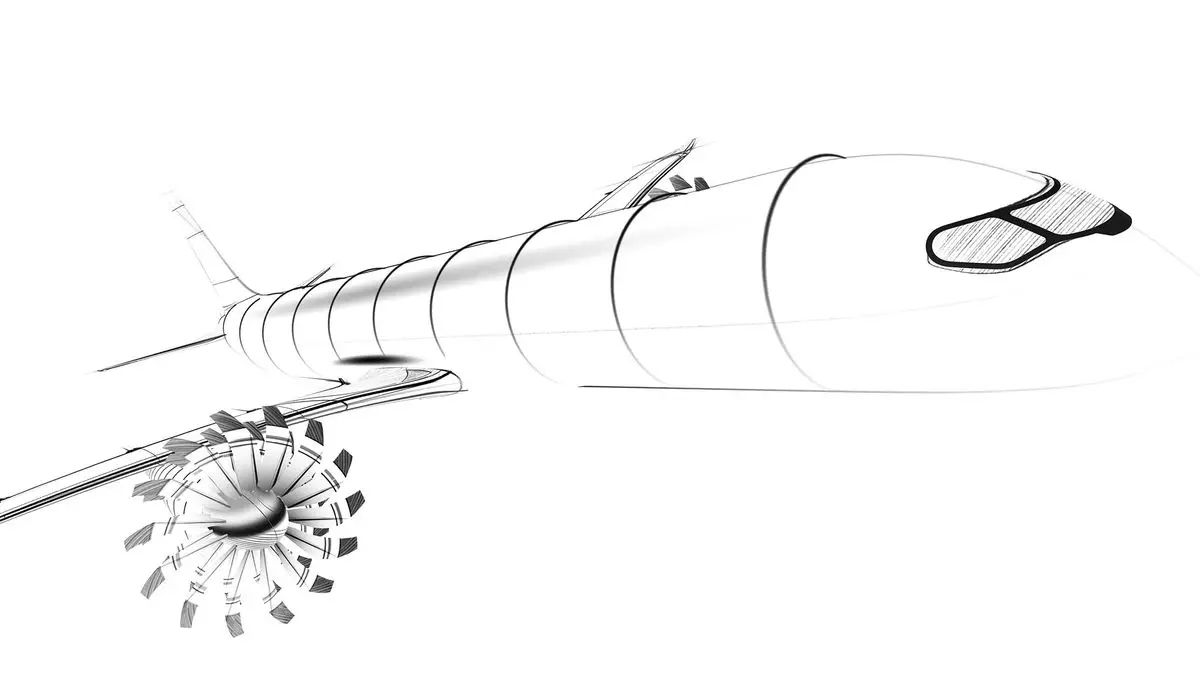Airbus, a titan in the aviation industry, is casting a bold vision for the future of air travel by setting sights on a revolutionary single-aisle aircraft. Scheduled for deployment in the latter half of the 2030s, this new aircraft aims to achieve staggering fuel efficiency improvements of 20% to 30%. What sets Airbus apart is its commitment to sustainable aviation, aligning with global targets to reach net-zero emissions by 2050. The driving force behind this ambitious plan lies in groundbreaking innovations in engine and wing technology, alongside advancements in materials and hybrid-electric systems that promise to significantly reduce emissions.
Innovative Engine Technology: The Future of Propulsion
At the core of Airbus’s vision is a transformative approach to aircraft engines. The introduction of an open fan-propulsion system marks a departure from the traditional enclosed turbofans that have defined commercial air travel for decades. This innovative design aims to enhance performance by introducing larger fans, effectively overcoming drag issues that have constrained older systems. As Mohamed Ali from CFM International indicated, this shift signifies an evolution in propulsion, one that embraces efficiency while tackling longstanding aerodynamic challenges. Notably, Airbus has initiated rigorous testing of this conceptual framework, targeting test flights by the end of this decade. This concerted effort underscores the company’s ambition to lead the charge toward enhanced aviation performance.
Reimagining Wing Design for Optimal Aerodynamics
Wings are another critical area where Airbus intends to push boundaries. The company is exploring a revolutionary folding wing design that promises to elevate the aviation experience. Characterized by longer, more slender dimensions, these wings are optimized for reducing drag and increasing lift. As observed by Sue Partridge, head of the Wing of Tomorrow program, this design could be likened to the effortless gliding of an albatross—a biomimetic inspiration that signifies nature’s efficiency in flight. However, encountering practical limitations poses a challenge, particularly concerning airport infrastructure that may not accommodate this innovation. To address this, Airbus has developed wing demonstrators that would fold upon landing, allowing for seamless integration into existing gate structures without compromising performance during flight.
Revolution in Aircraft Materials
Beyond aerodynamic advances, a focus on lightweight, resilient materials offers the possibility of improved fuel efficiency throughout the entire aircraft. By leveraging cutting-edge materials technology, Airbus aims to enhance the structural design of the fuselage, contributing to weight reductions that directly correlate to fuel consumption. This holistic approach is crucial; it aligns perfectly with Airbus’s sustainability goals, as the company recognizes that every component plays a vital role in the overall performance and environmental footprint of an aircraft.
Electrification and Hybrid Systems: A New Era
One of the most exciting elements of Airbus’s strategy includes the exploration of hybrid-electric power systems. While these systems are currently intended for non-propulsive functions—such as powering cabin lighting, air conditioning, and ground movement protocols—they represent an important step towards integrating electrical solutions into mainstream aviation. The recent hybrid-electric demonstration flight, conducted in collaboration with aerospace partners Safran and Daher, marks a significant milestone in this endeavor. Although propulsion remains reliant on traditional fuel sources for the time being, this technology serves as a harbinger of the gradual shift towards more sustainable operational practices.
A Vision for the Future of Air Travel
While Airbus acknowledges that the journey toward realizing this ambitious vision is still in its nascent stages, the groundwork laid by current research and development efforts is a testament to the company’s forward-thinking ethos. Bruno Fichefeux’s metaphor of being „at the level of the ingredients“ aptly encapsulates the exploratory nature of this phase, with Airbus meticulously piecing together the components of innovation. Continued investment in technology, infrastructure, and collaborative partnerships will be essential as they strive toward making this vision a reality. In a time where climate-consciousness is paramount, Airbus is not just innovating; they are aspiring to redefine what it means to fly sustainably.


Napsat komentář